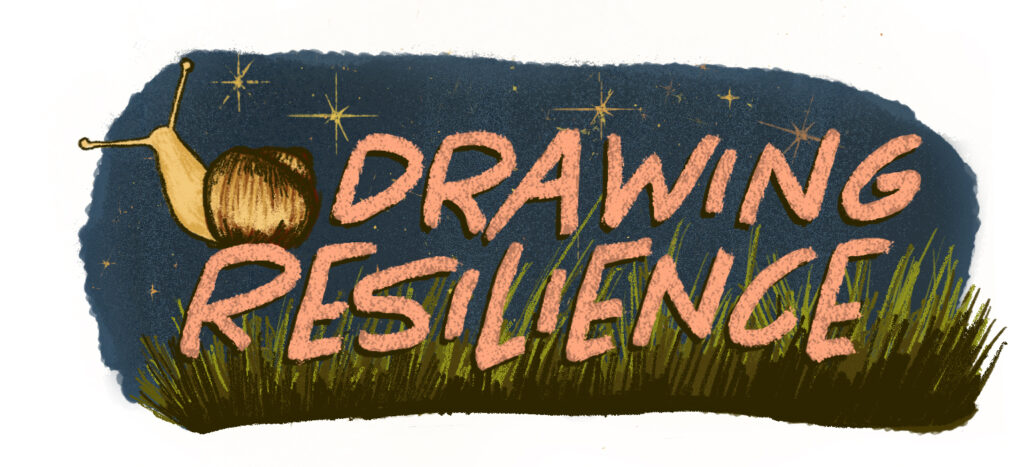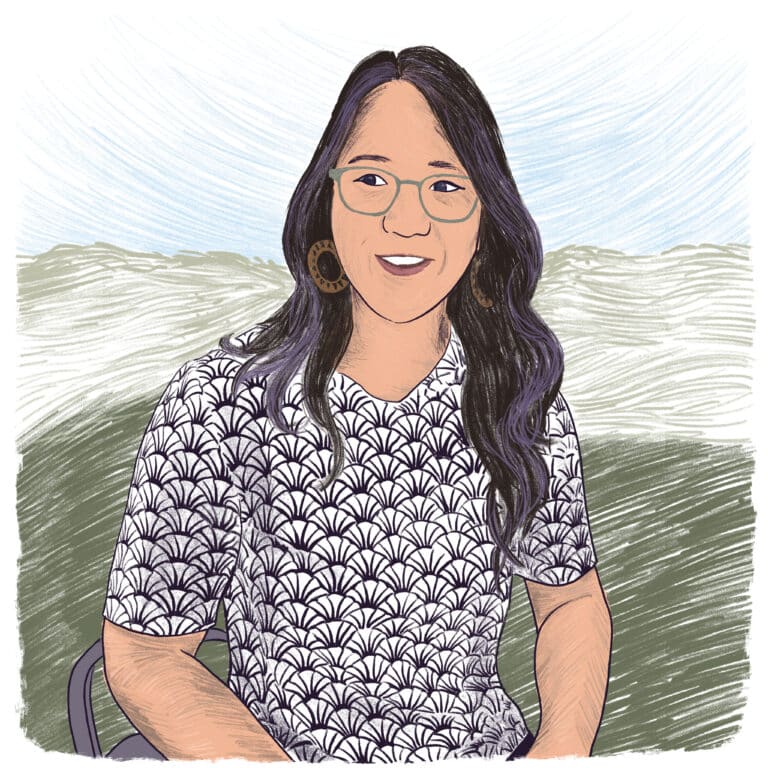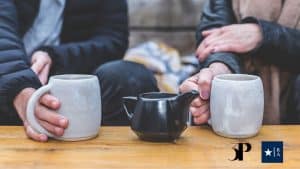
Drawing Resilience: Nancy XiáoRong Valentine

Illustrations and interview by Nhatt Nichols
Nancy XiáoRong Valentine (she/her) is a Chinese American artist living and making a life in rural Otter Tail County, Minnesota.
Conceived as the second child of a family residing in Lanzhou, Gansu, during the era of China’s ‘One Child Policy,’ Nancy’s mother immigrated to Minnesota in 1992 to gift her daughter the opportunity of life.
Valentine is a 2024 Rural Regenerator Fellow with Springboard for the Arts and was awarded a 2023 Creative Support for Individual Grant from the Minnesota State Arts Board and a 2023 Legacy Individual Arts grant from the Lake Region Arts Council.
In 2021, Valentine created “The Audacity to be Asian in Rural America: we owe you no apologies.” On her website, she describes it as “a series of 12 watercolor and Chinese ink scroll paintings on rice paper that visually tells the story of the Hao family’s (Nancy’s mom’s side) Chinese American immigrant experience in rural West Central Minnesota.”
Nhatt Nichols talked with Valentine about art, family, and resilience.
Nhatt: Do you think about resiliency as an artist?
Nancy: I think of different types of resiliency; Individual resiliency and how every day I wake up, there has to be a thick skin. I’m trying to have that as a form of boundaries, but I also approach things with my authentic gentleness. It’s the soft sides of me that have been hurt so much that I recognize that there are likely other soft people out there, people with soft sides that need to see others withstand the test of time.
In terms of community resiliency, in my family there’s this tendency to have a hardship or a disagreement with each other but then go straight into play. When I think of community resilience, I think we play and create because it is a form of survival and hope.

Nhatt: How does that manifest in your work as an artist?
Nancy: It manifests itself, quite literally, in terms of size. I started working large scale through the project at the Kadditz Gallery. That was my first time going big, and it was empowering. Here’s a piece that is undeniably saturating your senses; whether you want it to or not, you have to engage with it when it’s in front of you. The material itself also feels like resiliency. It is rice paper, which can tear so easily, but it’s still confronting people and asking them to consider other lived experiences. Even though it’s as thin as rice paper, it’s still before you in all of its brilliance.
Nhatt: You’re bringing the Chinese culture you were raised in to your rural Midwest homeland. Did it change your relationship with living in a rural place?
Nancy: It did. When I started the (Audacity) series, I knew it would reveal to my community what I had kept quiet my whole life. When I first created and launched the series at the Historical Society, I thought, wow, this is the first time they’ve ever had an exhibit like this.
Then, over the next two years, I was touring it and turning it into these full-fledged scrolls. I had no idea how much evolution I would go through in that period.
Fast forward to now, and the series is back in Fergus Falls in the gallery where I work. I am more grounded in who I am, my approach to my creative practice, and my approach to community building. My reception for this felt like an invitation to meet me as I am now.
Nhatt: Tell me about your new role as a rural art gallery executive director.
Nancy: The Kadditz is all about fostering arts appreciation and education in our region. When we talk about education, does that limit us to children, or can we have an intergenerational audience? Does that limit us to one community, or can we open it up to other communities like queer community, underserved community, and recovery community?
Can it be for community artists that are not generally in fine art spaces?
Can we have a balance that the community feels comfortable coming into? Because when you have a fine arts gallery in a rural place, people think, “Am I the right person to be in this space?”
I don’t want anyone to feel that when they walk through the doors, I want a welcoming ambiance. We’re not there yet, but we’re stepping towards it.
Nhatt: What do you think an art gallery’s role is in community resilience?
Nancy: Our space is a haven where people can seek beauty, which we often need during difficult times to remind us of hope. It’s also a hub for response. I think a lot of things happen in these communities where people have a lot of feelings, they have a lot of inertia, and they need a place to channel it. I want us to get to a point where we’re a space that has that freely for the community, but also a structured element so it’s not just chaos.
Want to learn more about Nancy’s work? Visit her website, follow her on Instagram, or watch this clip from Postcards, a local public television program presented by Pioneer PBS
Get this and other rural content in your inbox with the Rural Assembly newsletter.







